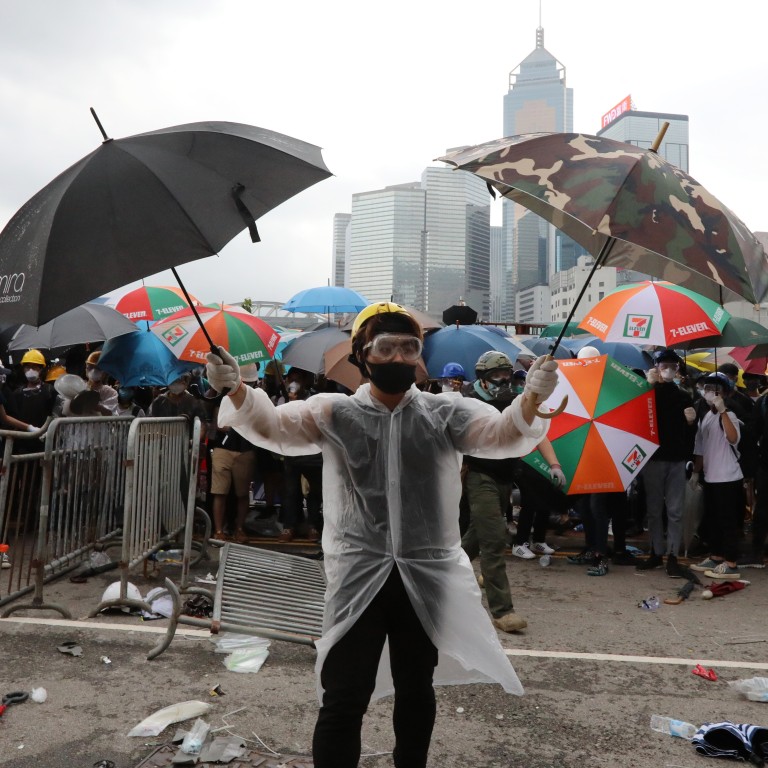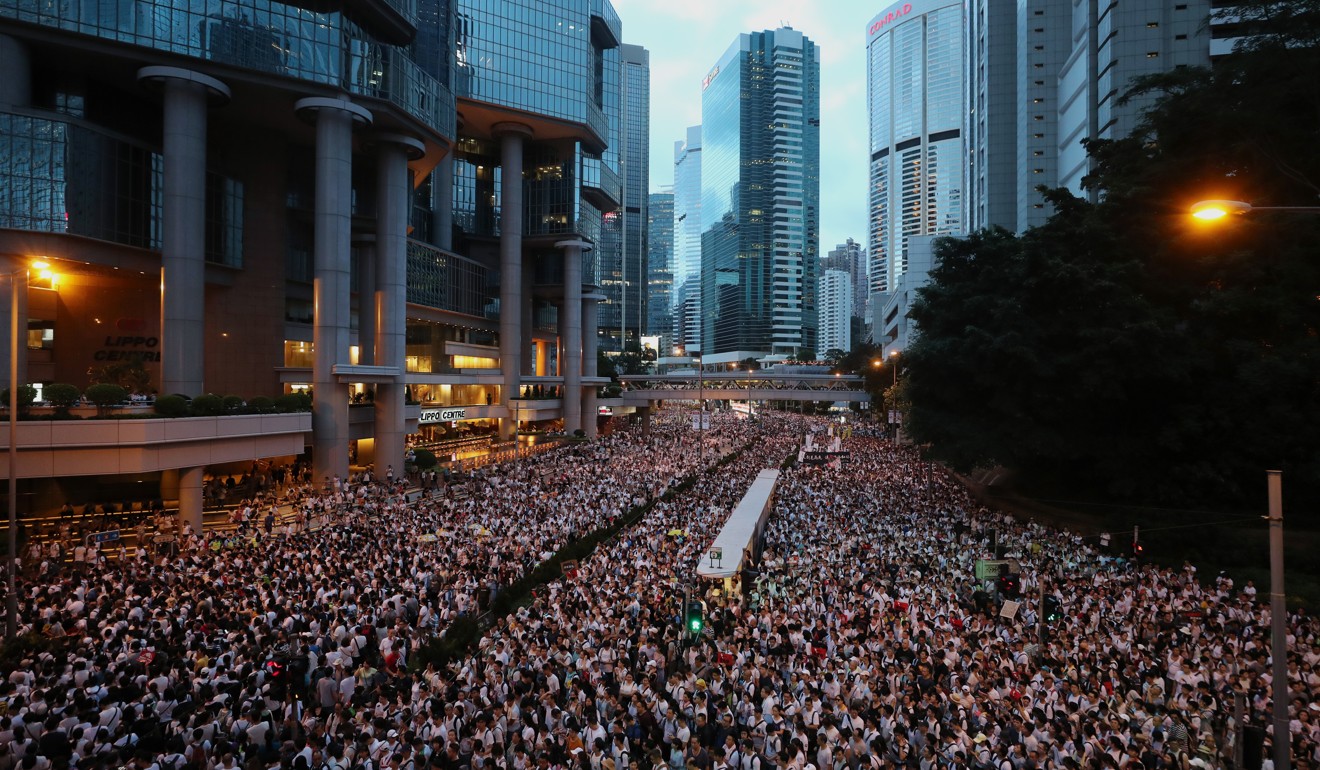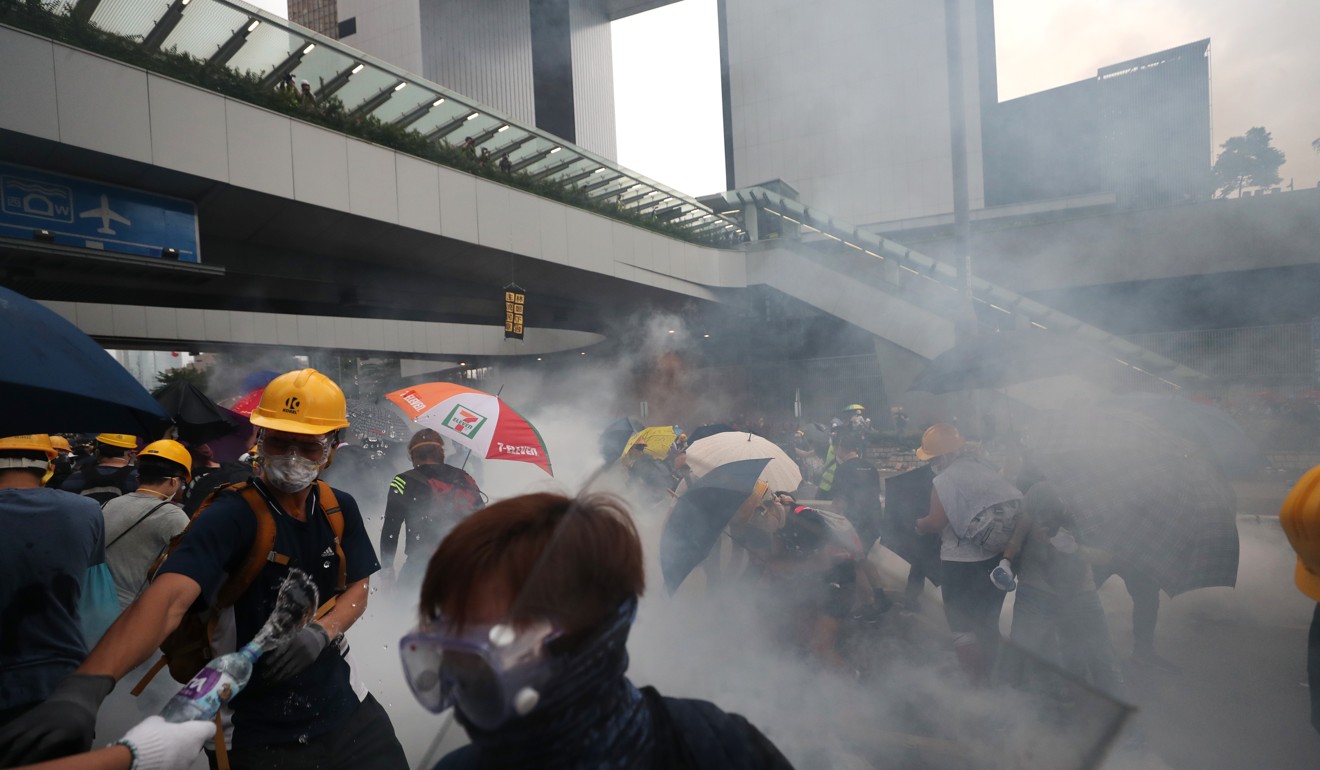
China’s public security ministry warns its bureaus to be on guard against ‘political risks’ caused by influence of protest-hit Hong Kong
- According to internal document, mainland authorities held video conference as tens of thousands of protesters surrounded Hong Kong’s legislature
- US suppression was the greatest external factor affecting China’s ‘political security’, it said, highlighting message from public security vice-minister
The Ministry of Public Security in Beijing ordered all of its bureaus to guard against any influence from Hong Kong amid fears the anti-extradition bill protests “plotted by the United States” would escalate, the Post learned on Saturday.
The occupation in Admiralty ended in clashes between protesters and police, who fired tear gas, beanbag rounds and rubber bullets to disperse the crowd in the afternoon.
The document, highlighting the message from public security vice-minister Xu Ganlu at the meeting, said US suppression had become the greatest external factor affecting China’s “political security”.
It said that with the “intervention, plotting and support” of the US and other Western powers, Hong Kong’s opposition camp organised a large anti-extradition bill protest on June 9, which had considerable effect.
“According to the intelligence collected, protest activities could be further expanded as the bill enters the scrutiny and voting stage,” the document said.
Protesters and police in tense new stand-off at site of PLA dock
It urged security authorities to make it their priority to guard against “political risks” spread online and by Hong Kong and external forces.
It also called on authorities to pay close attention to key mainland political figures.

Tensions escalated further on June 12 after the government refused to address the calls. The ensuing violence resulted in at least 80 people being injured and more than 30 arrests. The bill was suspended on June 15.
Across the border, the protests were depicted negatively by internet users, who played up the rhetoric of external forces influencing the city and lashed out at the violent scenes, saying Hong Kong’s image had been tarnished as a result.
On Friday, Taiwan’s Central News Agency reported that a public security officer had reminded a Taiwanese person working on the mainland not to talk nonsense about Hong Kong matters online as the country had classified the protests as a riot.

Some online articles that blamed Hong Kong’s young generation for being stupid and biased went viral.
Professor Lau Siu-kai, vice-chairman of semi-official think tank The Chinese Association of Hong Kong and Macau Studies, said the protests could create a demonstration effect on the mainland, where some people might be encouraged to follow suit.
Lau said mainland authorities were worried the protests would undermine stability across the border, particularly in neighbouring Guangdong province.
He said the difficulties the Chinese economy faced amid the US-China trade war could increase social conflicts and unstable factors in the country.
“The most special thing about Hong Kong is that what its people do are rarely done by mainlanders,” he said, adding mainland residents seldom challenged the central government.
But veteran China watcher Johnny Lau Yui-siu said the protests would have limited impact on people across the border, where the quality of life was improving.
“They can eat well and enjoy an improved life. Such actions in Hong Kong do not have much resonance there,” he said.
Still, Lau noted the local movement could on an ideological level affect the mainland’s intellectual circles and those who were discontented with society.

